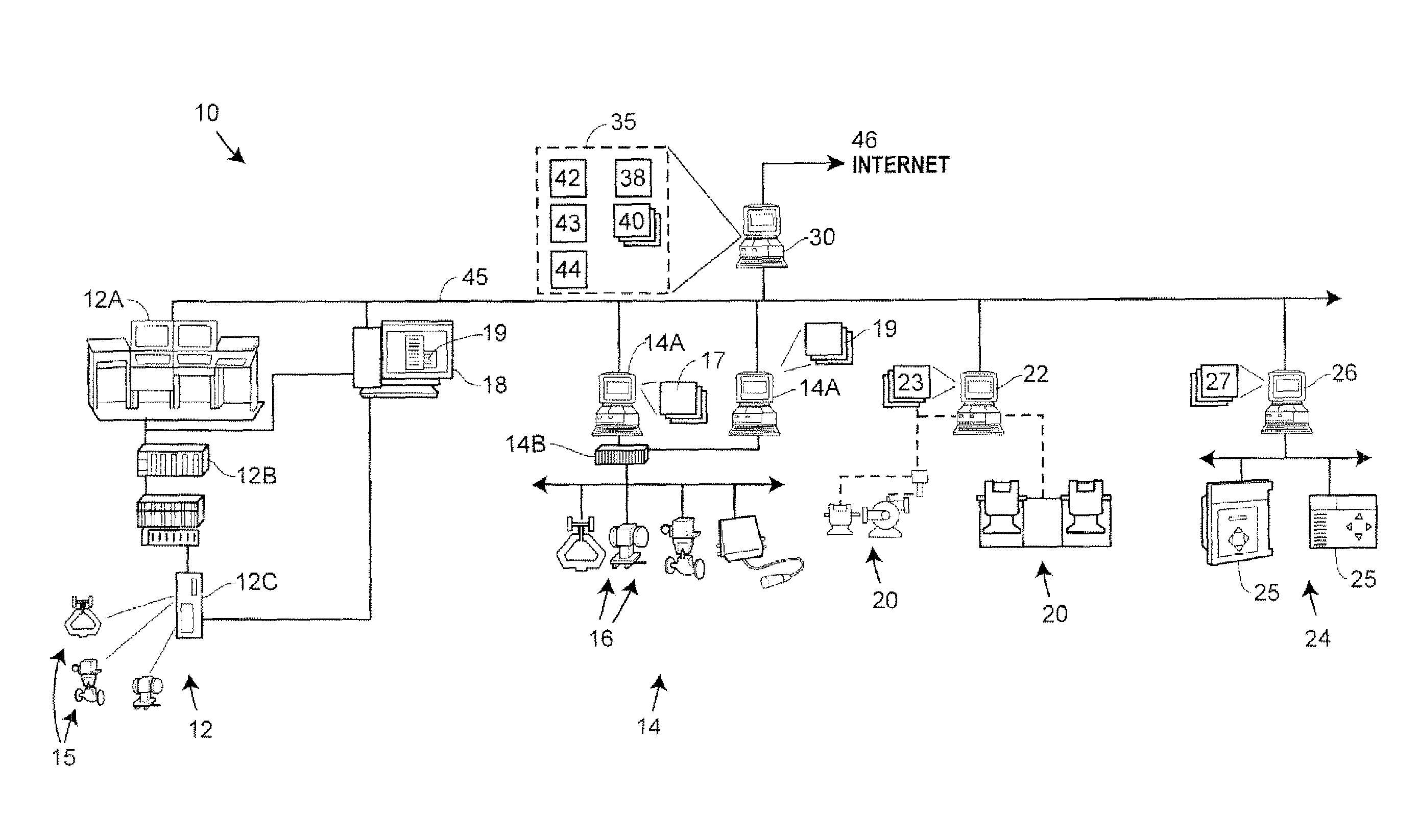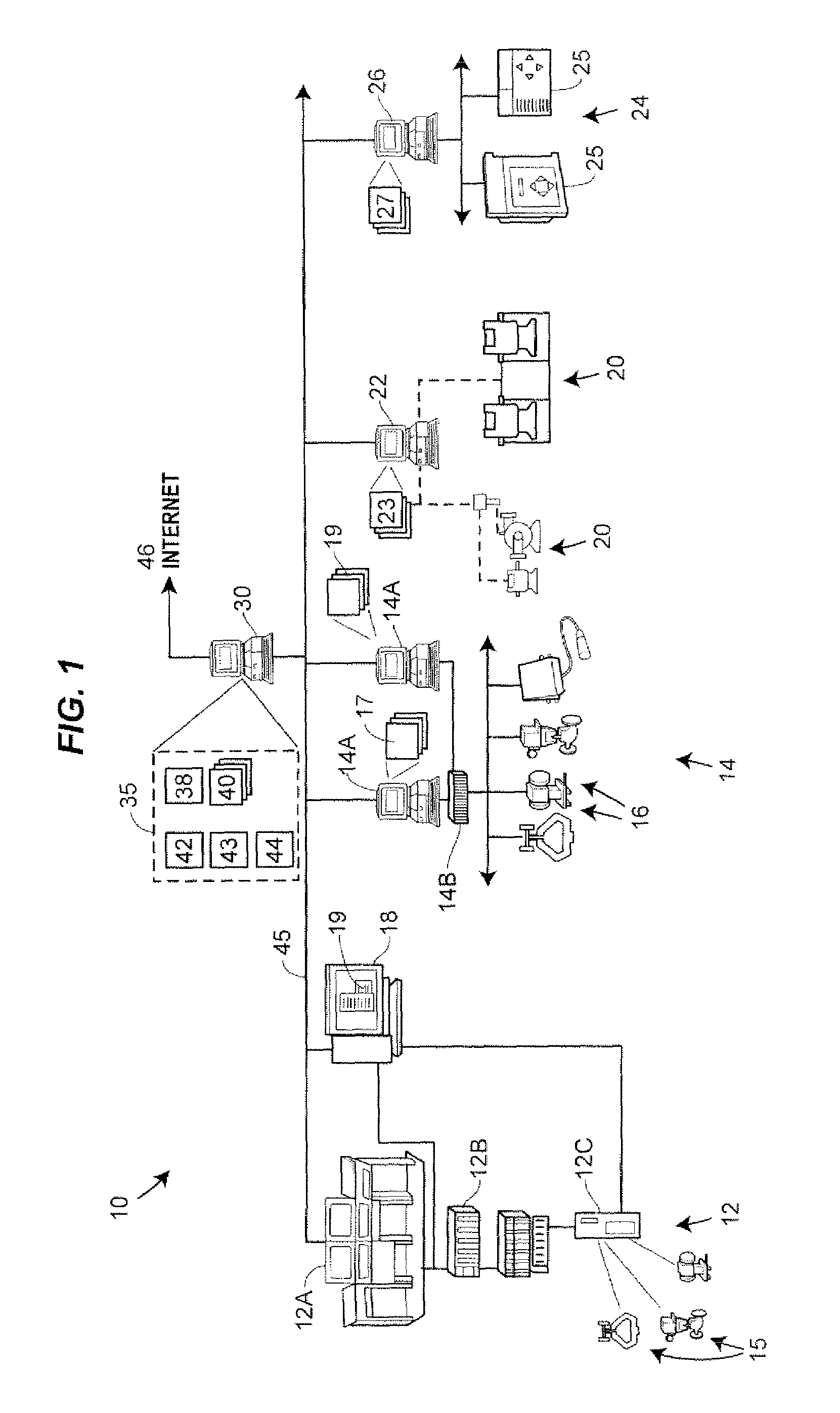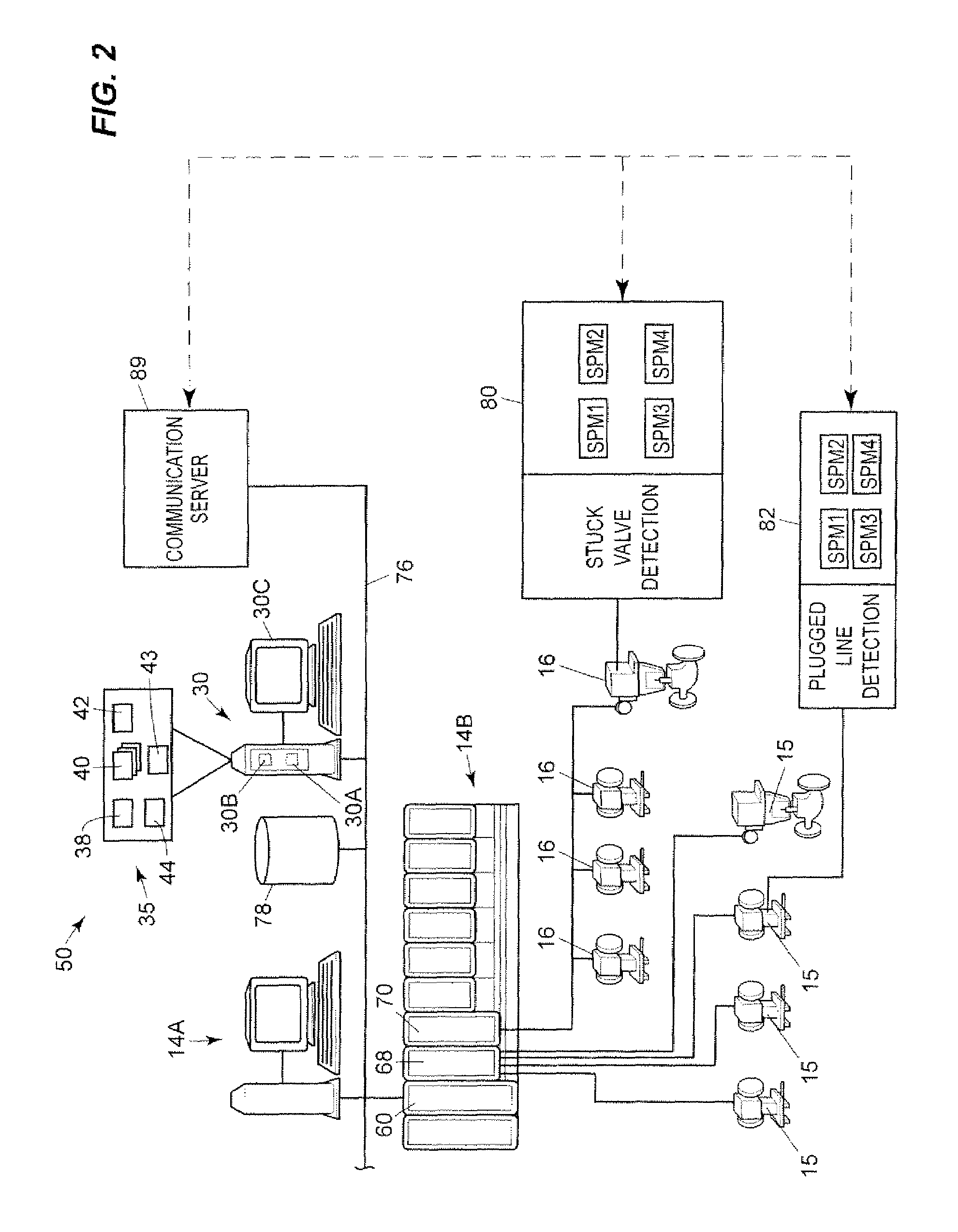Statistical signatures used with multivariate statistical analysis for fault detection and isolation and abnormal condition prevention in a process
a statistical analysis and statistical signature technology, applied in the direction of instruments, testing/monitoring control systems, nuclear elements, etc., can solve problems such as logic elements, broken or malfunctioning devices, and frequently occurring problems in the process plant environmen
- Summary
- Abstract
- Description
- Claims
- Application Information
AI Technical Summary
Benefits of technology
Problems solved by technology
Method used
Image
Examples
Embodiment Construction
[0036]Referring now to FIG. 1, an example process plant 10 in which a fault detection and isolation system may be implemented includes a number of control and maintenance systems interconnected together with supporting equipment via one or more communication networks. In particular, the process plant 10 of FIG. 1 includes one or more process control systems 12 and 14. The process control system 12 may be a traditional process control system such as a PROVOX or RS3 system or any other control system which includes an operator interface 12A coupled to a controller 12B and to input / output (I / O) cards 12C which, in turn, are coupled to various field devices such as analog and Highway Addressable Remote Transmitter (HART®) field devices 15. The process control system 14, which may be a distributed process control system, includes one or more operator interfaces 14A coupled to one or more distributed controllers 14B via a bus, such as an Ethernet bus. The controllers 14B may be, for examp...
PUM
 Login to View More
Login to View More Abstract
Description
Claims
Application Information
 Login to View More
Login to View More - R&D
- Intellectual Property
- Life Sciences
- Materials
- Tech Scout
- Unparalleled Data Quality
- Higher Quality Content
- 60% Fewer Hallucinations
Browse by: Latest US Patents, China's latest patents, Technical Efficacy Thesaurus, Application Domain, Technology Topic, Popular Technical Reports.
© 2025 PatSnap. All rights reserved.Legal|Privacy policy|Modern Slavery Act Transparency Statement|Sitemap|About US| Contact US: help@patsnap.com



